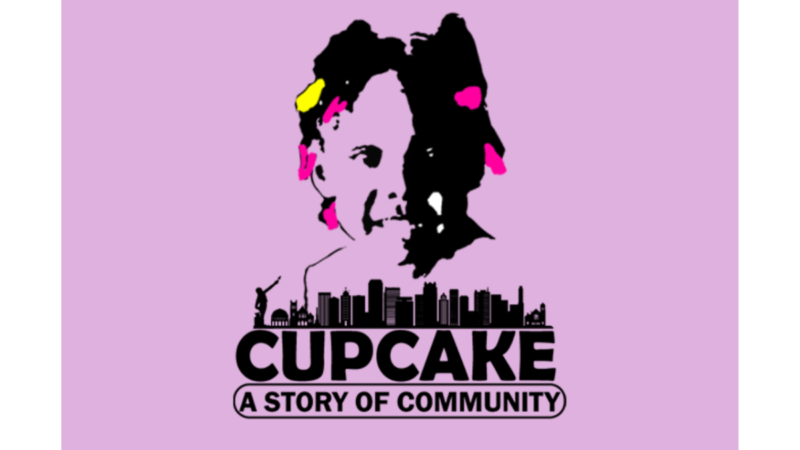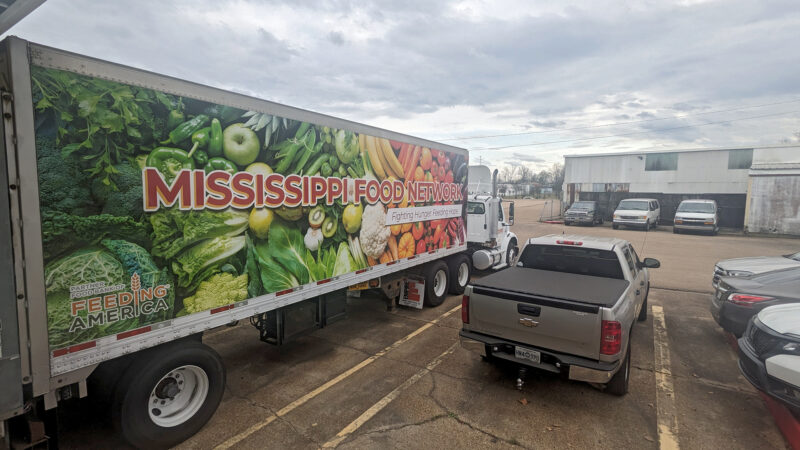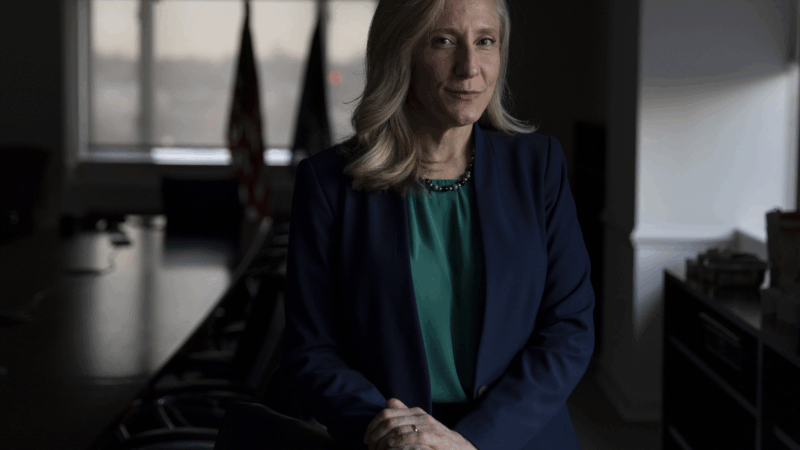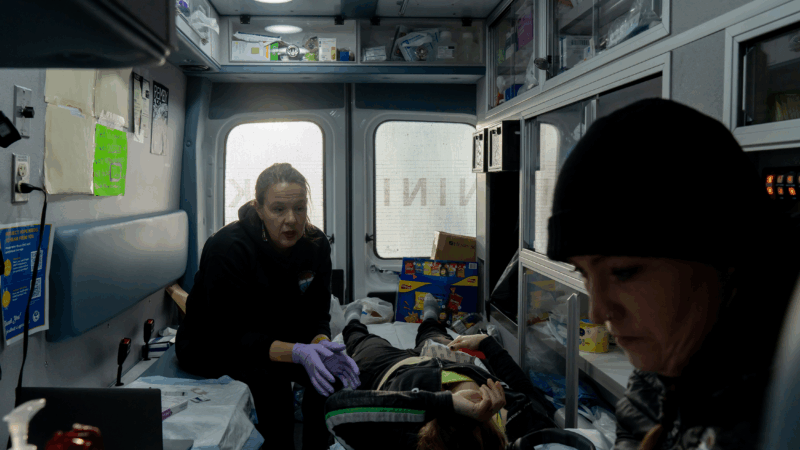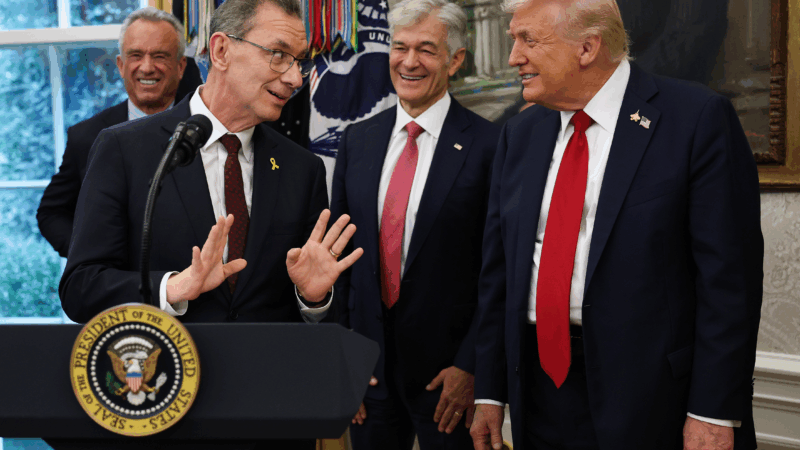WBRC’s new podcast explores the disappearance of Kamille ‘Cupcake’ McKinney
Last week, a judge sentenced two people to life in prison without parole in a federal kidnapping case that resulted in the death of Kamille ‘Cupcake’ McKinney.
The 3-year-old went missing in 2019 outside a public housing complex in Birmingham. Her body was found about a week later in a dumpster.
A new podcast from WBRC-TV called “Cupcake: A Story of Community” digs into the case, which gripped the Birmingham community.
WBHM’s Miranda Fulmore spoke with the podcast’s host, Challis Morgan.
This interview was edited for length and clarity.
In this podcast, you walk listeners through the 10-day period between Cupcake’s disappearance and when her body was found. One of your key interviews is with April Thomas, Cupcake’s mom. Tell me a little bit more about her experience.
When I interviewed her, it wasn’t just the pain of losing her daughter that she sort of portrayed, it was the pain of the social pressure that also made an impact on her. And so to try to get that — it was a dense project to try to work on.
Talk about that social pressure. In the podcast, you mentioned that people would take to social media and question April’s mothering decisions and how she handled the kidnapping. Tell me a little bit more about how social media played a role in April’s experience.
Social media is a very interesting beast. It is a place where it’s like little leftovers, little nagging thoughts go to live, and they stay there and they grow because everyone else’s nagging thoughts and like suspicions sort of just gather. And it became this alternate universe of criticism, suspicion and judgment a little bit. During that time, I remember sort of hearing people say, as an afterthought, like: “Hmm, I wonder why that child was out so late.” Like, people would just kind of say it, but it wasn’t the theme of the conversation. And on social media, it gets really warped really quickly and really easily. And that was something that April had to sort of reckon with. Even still, her social media presence plays a little bit of a role in her experience, and that idea of social media and what happens when you take something that’s very serious, that is involving someone’s life, well-being, heart, past, and you take it and you turn it into a debacle on social media. It really does have impacts. It’s a really big deal.
What’s something you didn’t get to dig into in this podcast episode that you wish you could have explored more?
The suspects. I don’t talk about them in this episode. So you have these two people who come from different backgrounds and have different pasts, but they’re in the same place carrying this darkness forward. How did that happen? Why did that happen? I really wish that I could have taken some time to get into some of that stuff. Because, I mean, it’s real. You can just paint them as just like two demons. But, I mean, what is the story? Why? What the heck was that?
What do you hope listeners take away from listening to this podcast?
A little bit more awareness, just a little bit more awareness of the fact that there is always so much more to the story. Anytime something happens, our emotions are what guide us … like little arrows. … That’s what encourages our actions. And when things happen we have emotional responses initially. But it’s really important to stop and take a second and try to get a better understanding of what it is that you’re looking at so that you can translate your emotions into actions, productive actions.
No sign of new protests in Iran as a hard-line cleric calls for executions
A Iran returns to an uneasy calm after protests led to a violent crackdown, a senior cleric is calling for the death penalty for detained demonstrators. His sermon Friday also threatened U.S. President Trump.
Gulf South food banks look back on a challenging year as another shutdown looms
Federal funding cuts and a 43-day government shutdown made 2025 a chaotic year for Gulf South food banks. For many, the challenges provide a road map for 2026.
Measles is spreading fast in S.C. Here’s what it says about vaccine exemptions
More than 550 people have contracted measles in Spartanburg County, S.C., in a fast-growing outbreak. Like a majority of U.S. counties, nonmedical exemptions to school vaccination are also rising.
It took 75 governors to elect a woman. Spanberger will soon be at Virginia’s helm
Abigail Spanberger, a former CIA officer and three-term congresswoman, is breaking long-held traditions on inauguration day. She says she wants her swearing-in to showcase the state's modern vibrancy.
For those with addiction, going into and coming out of prison can be a minefield.
Many jails and prisons around the country don't provide medication treatment for opioid use disorder. Studies show that medication makes recovery more likely and reduces the risk of overdose death.
Trump struck deals with 16 drug companies. But they’re still raising prices this year
All 16 drug companies that inked deals with the Trump administration over the past few months still raised some of their prices for 2026.

